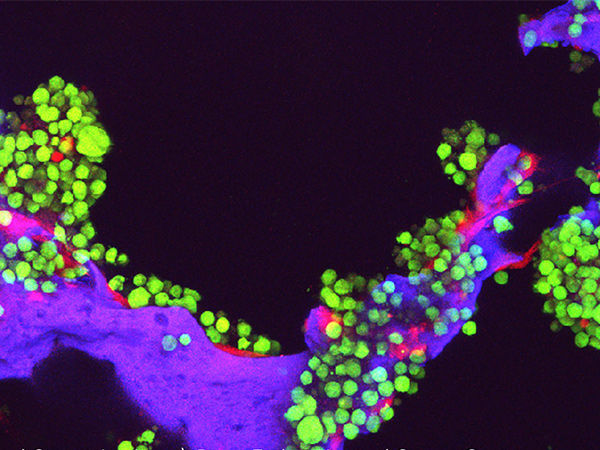A New Targeted Therapeutic for Multiple Myeloma
The newly approved therapeutic is for patients with multiple myeloma that has either stopped responding to or has failed to respond to multiple other treatments.

The U.S. Food and Drug Administration (FDA) recently approved the new molecularly targeted therapeutic selinexor (Xpovio) for treating patients with multiple myeloma whose disease has relapsed subsequent to, or never responded to, treatment with at least two proteasome inhibitors, at least two immunomodulatory agents, and a CD38-targeted immunotherapeutic.
Multiple myeloma is one of the most commonly diagnosed blood cancers in the United States, with 32,110 new cases expected to be diagnosed in 2019.
In recent years, the development and FDA approval of new therapeutics—including proteasome inhibitors like bortezomib (Velcade) and carfilzomib (Kyprolis), immunomodulatory agents such as lenalidomide (Revlimid), and immunotherapeutics such as the CD38-targeted daratumumab (Darzalex)—have improved outcomes for many patients, although not all patients have disease that responds to the new therapeutics. Moreover, despite the advances, many patients whose disease initially responds to the new therapeutics eventually relapse due to treatment resistance. Therefore, new approaches to treating multiple myeloma are urgently needed.
Research has shown that a protein called XPO1 is found at elevated levels in multiple myeloma cells. XPO1 helps move proteins out of a part of the cell called the nucleus. It is particularly linked to moving proteins that suppress tumor growth out of the nucleus, suggesting that it might be a good therapeutic target.
Selinexor targets XPO1, forcing tumor suppressor proteins to be retained in the nucleus of multiple myeloma cells where they can act to suppress growth of the cancer cells.
The approval of selinexor was based on results from 83 patients enrolled in a phase II clinical trial that showed that 25 percent of heavily pretreated patients responded to treatment with the new molecularly targeted therapeutic. The median duration of the responses was 3.8 months.
Subsequent results from the trial that included data from an additional 39 patients, which were published in The New England Journal of Medicine, showed that 26 percent of heavily pretreated patients responded to treatment with the new molecularly targeted therapeutic. The median duration of the responses was 4.4 months.
